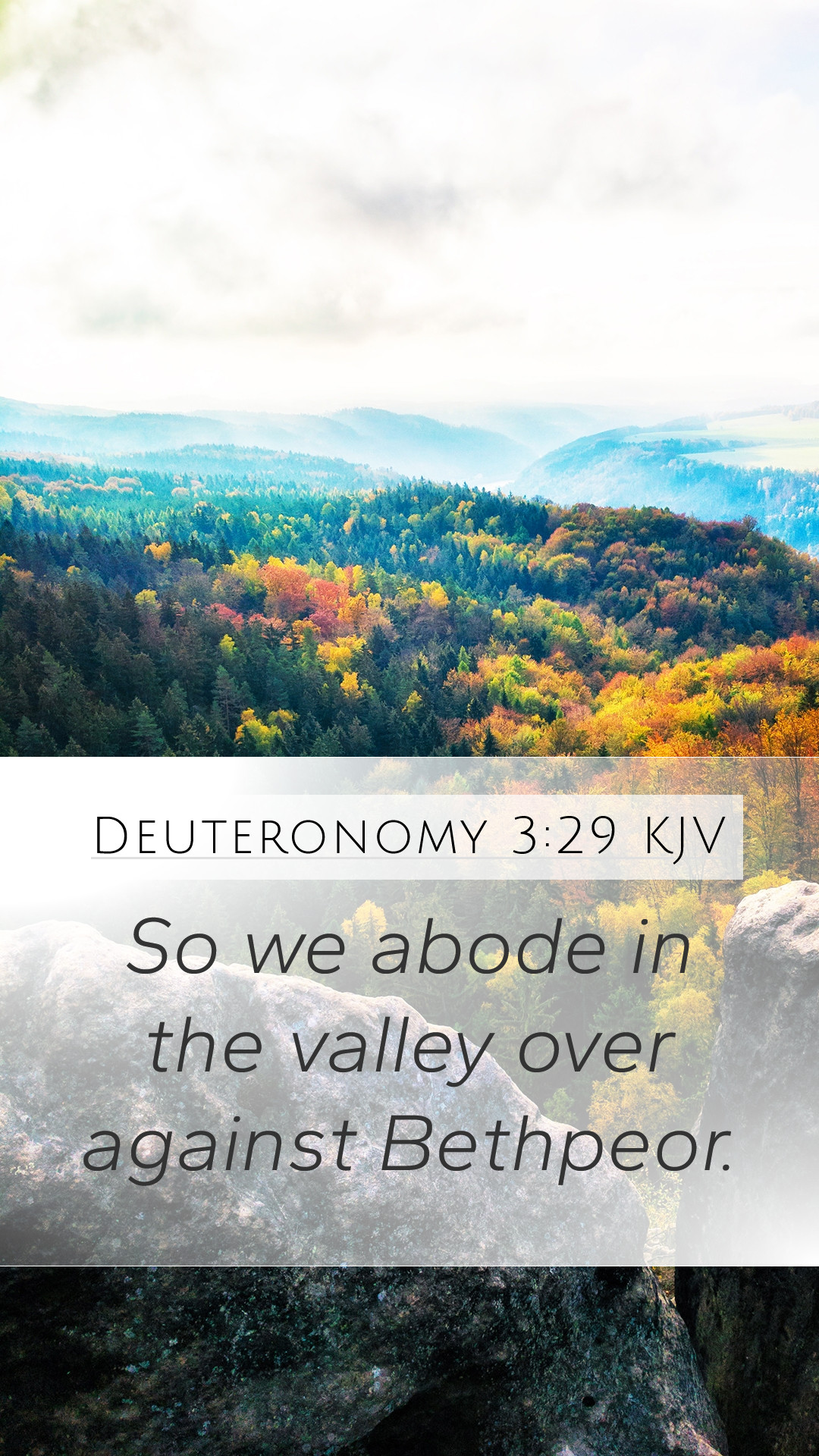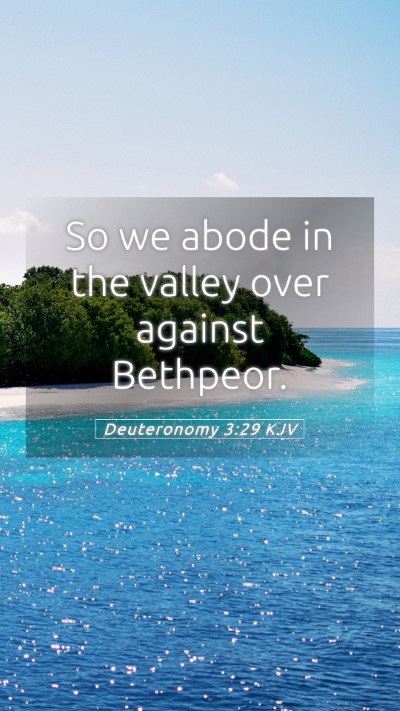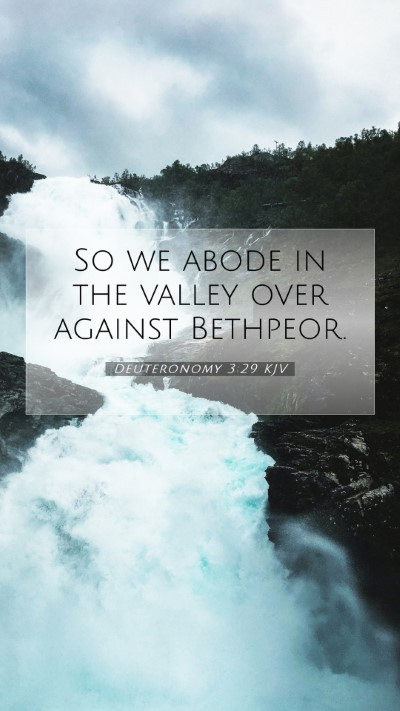Understanding Deuteronomy 3:29
Deuteronomy 3:29 states, "But we stayed in the valley opposite Beth Peor." This verse marks a significant moment in the journey of the Israelites as they traverse the wilderness and come closer to the Promised Land. Below, we will explore various insights from esteemed public domain commentaries that elaborate on the meaning and implications of this scripture.
Bible Verse Meanings
This verse indicates a pause in the journey of the Israelites, suggesting both a physical and spiritual significance. According to Matthew Henry, this moment reflects a time of rest and reflection before entering new territories—a metaphorical pause to acknowledge the past and prepare for what lies ahead.
Bible Verse Interpretations
Albert Barnes provides insight into the geographical context of this verse. He notes that Beth Peor was a place of importance, often associated with the worship of Baal. The Israelites’ stay in this valley serves as a reminder of their ongoing battle against idolatry and the need to remain steadfast in their faith.
Furthermore, Adam Clarke elaborates on the spiritual implications of this pause. He suggests that this verse encapsulates a moment where the Israelites reflected on God’s promises and prepared themselves for future challenges. This reflects the essence of faith—a journey that requires both movement and contemplation.
Bible Verse Commentary
Various commentaries highlight the significance of valleys in Scripture. Valleys are often symbolic of low moments or trials, but they also provide opportunities for growth and reflection. In this context, the valley opposite Beth Peor symbolizes the transition phase before entering the Promised Land, wherein the Israelites must reaffirm their trust in God.
Key Themes in Deuteronomy 3:29
- Reflection: A moment to recall God’s provision and promises.
- Preparation: An essential step before embarking on new endeavors.
- Spiritual Warfare: The constant need to resist idolatry and remain faithful.
Scripture Analysis and Biblical Exegesis
The analysis of Deuteronomy 3:29 reveals layers of meaning both in the context of Israel’s history and individual spiritual journeys. Matthew Henry emphasizes the idea that reminiscence is crucial for spiritual vitality. In considering this passage, readers are encouraged to reflect on their own valleys and how these experiences shape their faith.
Historical Context of the Verse
Understanding the historical context enhances the verse's meaning. The Israelites were on the cusp of entering a land promised to them and yet faced the disheartening memory of their predecessors’ failures. Barnes suggests that their stay was filled with both hope and warning: a reminder of what they were to avoid as they sought to fulfill their God-given destiny.
Application of the Verse to Daily Life
For modern believers, Deuteronomy 3:29 serves as a reminder of the importance of rest and reflection in a fast-paced world. As people navigate their spiritual lives, it can become easy to rush forward without taking the time to pause, reflect, and seek God’s guidance. This verse encourages individuals and Bible study groups to create space for contemplation, allowing them to approach their journey with both clarity and commitment.
Bible Study Insights
When studying Deuteronomy 3:29 within a Bible study group, consider the following questions:
- What does the valley symbolize in your personal journey of faith?
- How can we better prepare for challenges ahead in our spiritual lives?
- In what ways can we remind ourselves of God's promises as we move forward?
Meaning of Bible Verses and Cross References
To enrich the interpretation of this verse, consider the following cross-references:
- Deuteronomy 1:36: A reminder of God's promise to Caleb.
- Joshua 1:11: Preparing for the conquest of the Promised Land.
- Romans 15:4: The significance of learning from the past.
Understanding Difficult Bible Passages
For those struggling with the complexities of biblical texts, Deuteronomy 3:29 serves as an example of how crucial it is to study Scripture in community. Online Bible study tools and resources can facilitate deeper understanding and discussion on such passages, leading to greater clarity and insight.
Conclusion
In summary, Deuteronomy 3:29 embodies themes of reflection, preparation, and spiritual vigilance. The insights from Matthew Henry, Albert Barnes, and Adam Clarke collectively inspire a deeper engagement with the text, highlighting the significance of pausing, reflecting, and affirming one’s faith before moving forward. As one embarks on their journey through Scripture, the lessons learned from this verse can profoundly influence both personal and communal faith journeys.


